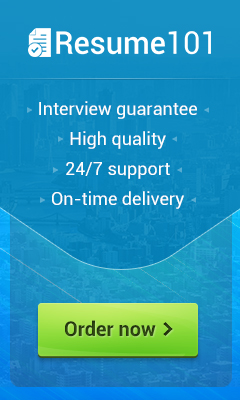

Resume Advice for Gaining a Federal Or Overseas Job
Mastering federal or overseas resumes is a little like basic training – it’s painful but has to be accomplished if you want a career with Uncle Sam.
To avoid a losing battle with this extensive and cumbersome CV, apply the following tips:
Be focused and specific.
Know which federal or overseas jobs you’re qualified for, their requirements and their availability, says Lillian Schoellhorn, chief of the central examining branch at the Defense Mapping Agency in St. Louis. Start by visiting job sites to review vacancy announcements. Unlike postings for civilian jobs which can be vague and misleading, announcements for federal vacancies include job requirements, location, where to apply and whom to contact for more information. Unlike the private sector, government recruiting falls under the guidelines of the Freedom of Information (FOI) Act. By law, they have to release any and all information about their jobs.
If you’re still not sure what a federal or overseas position requires, call the agency and ask for more details, Ms. Schoellhorn says. Uncle Sam is more than willing to assist you. “You have the support of the federal government in helping you apply,” she says.
Follow directions.
Carefully read the announcement’s instructions, questions and accompanied statements. If you don’t, you’ll answer incorrectly and appear careless.
Answer all questions completely.
Be explicit, thorough and honest. By the same token, however, don’t draw attention to a bad experience by expanding on it.
Be concise.
Long-winded explanations aren’t necessary. Applications that look like telephone directories show that a candidate “is probably long on paper and short on actual expertise,” says Joe Ruiz, chief of OPM’s Federal Job Information and Testing Division. “We don’t need to know that in eighth grade you won an award for being punctual to class,” Ruiz expands.
Match your background to the job requirements.
“The most common mistake people make is preparing one resume and sending it in response to every federal job vacancy available,” says Ms. Schoellhorn. The result is a generic query without a career focus, a skills match or sincerity.
For example, applicants for a personnel training job overseas should only emphasize training experience in their resume for the position, not other personnel background, Ms. Schoellhorn says. “You have got to gear your application toward the job you’re applying for,” she explains.
Make your resume easy to read.
When describing specific duties, responsibilities and accomplishments, use simple sentences, leave white space between paragraphs and bold phrases to highlight key points.
Enhance basic experience.
Use a descriptive technique recommended by the U.S. Postal Service called STAR (Situation Task Action Result) to describe your experience. For example, instead of saying ‘responsible for data entry,’ say ‘The data entry department was losing productivity. In response, I suggested our staff take a three-week refresher course to improve keyboarding speed and accuracy. Following the course, productivity improved by 50 percent.’
Federal resumes are demanding and bureaucratic, but so is the U.S. federal government. To prove you can cut it as a federal employee, complete your application patiently, meticulously and, above all, by the rules.
